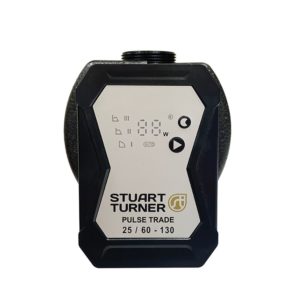Wilo Pumps Keeps Newspapers Printing
When a major company makes a huge investment in a new base in the UK, it needs the reassurance of quality components in its new operating base and reliability from the products it uses.
Palm Papers – a German company with seven paper mills across Europe has recently built a new plant in Kings Lynn. An impressive new base for its work in the UK and Ireland, it’s one of the largest and most efficient newsprint paper mills producing 400,000 tonnes of newsprint a year with a working width of 10.63 metres, producing around 2,000 metres of paper per minute. Palm Group employs more than 2,900 people and annually produces around 1.9 million tons of newsprint and corrugated packaging from 100% recycled paper. Its annual turnover is in excess of 800 million Euros.
The production of paper from recycled paper is an established and energy and cost efficient method of producing paper and saves hugely on the use of virgin wood from managed sources. Not only are the forests conserved, but making paper from recycled paper saves around half the energy and one third of the water needed for paper from wood pulp. In addition the effluent and waste produced is far lower.
The new building sits on a 50 acre site in north Norfolk and the statistics for the construction of the building are simply mind boggling. 70,000 tons of concrete, 65 kilometres of pipelines and 700 kilometres of electricity cables made their way into the construction. Add to these the huge investment in environmentally friendly technologies and you have a building that sets new standards when it comes to environmental performance of the plant.
The total pump infrastructure in the building has been supplied by leading pump manufacturer, Wilo. Heating, cooling, water supply, sanitation – all supplied by Wilo in a project valued to them at around €400,000.
A paper mill is responsible for a serious amount of wastewater – one this size produces the same amount as a city of 350,000 people – so a dedicated private sewage facility was built as part of the project. From this, approximately 96% of the wastewater can be recycled, meaning very little water needs to be sourced from the nearby River Ouse and the water that is put back into the river is actually cleaner than the water in the river was originally.
Wastewater from the plant is dealt with by five Wilo-EMU FA08 submersible pumps and two Wilo-EMU FA10 pumps. These are specially designed to pump waste water containing solids and for sewage plants and pumping stations for water management and industrial applications. Due to the complex nature of the plant, it incorporates four concrete sewage wells which were made in Germany, transported to the UK - all within a six week timeframe.
Wilo-EMU FA submersible pumps are also used for rainwater collection and drainage on the site. The rainwater is collected in three open retention basins and controlled from a control centre in the building. A total of twelve pumps – Wilo-EMU FA20s and 30s each pumping up to 900m3/h. Four relays control three pumps each and are connected by MODBUS to the building automation system.
In the building, the air conditioning and process cooling use Wilo pumps as well. The 2.3MW cooling requirements are dealt with by two quantum refrigeration compressors. Wilo-Veroline IPL and IPE in line pumps are utilised for chilled water distribution. In the laboratories cold water distribution is controlled by two Wilo-Stratos CAN pumps – integrated via an IF module lined to the building automation system. These pumps are based on the ECM – electronically commutated motors – which offer double the efficiency of an electronically controlled pump with a conventional drive. Wilo-Stratos high efficiency pumps have been optimised to the operating conditions of the air conditioning refrigeration area. They are capable of operating happily under a wide range of liquid temperatures – from -10°C to +110°C, protected by a cataphoretic coating to guard against corrosion.
Only the most energy efficient pumps were considered for the project with Wilo-Stratos and Wilo-Stratos ECO installed. The heating system comprises five sub-divisions covering the management area, gatehouse, raw materials warehouse, finished goods warehouse and workshop office - a total of 13 circuits which are also controlled by the building automation system.
To provide the required levels of water pressure around the buildings, Wilo Comfort-Vario pumps are installed, which with four pumps provides a flow of 25m3/h at a head of 80 metres. Once again this system is monitored and controlled by the building automation system.
“This project highlights a number of the reasons why Wilo pumps are sought after for major projects such as this,” says Wilo’s Simon Oakes, Sales Director – Water Management and Industrial, based in Burton-upon-Trent. “It demonstrates the faith that major contractors have in using our pumps and the ability for our pumps to be integrated in to building automation systems happily and to work together to provide all the pumping requirements of a project of this size and complexity. It also illustrates the energy efficiency benefits of utilising our high efficiency pumps, delivering significant operational benefits and savings – not just in the lower energy bills they deliver but in the lower maintenance costs associated with them because of their high reliability levels and in-built protection – this ensures the pumps run with minimal interference and maintenance. The lower life cycle costs associated with selecting Wilo pumps is a vital benefit to any major organisation looking to incorporate this number of pumps in an integrated system that needs to operate constantly with the minimal of fuss.”
Source: WILO SE




